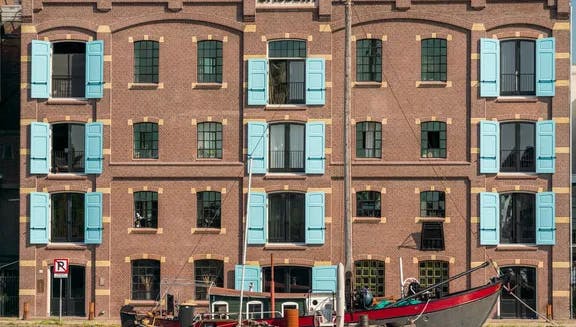
6 insider secrets for securing a Dutch mortgage
15 April 2025

If you’re considering buying a house or apartment in the Amsterdam region, it is advised to first meet with a mortgage advisor at your bank or an agency. This will give you a realistic picture of what you can afford.
The choice of property is either freehold (eigen grond) or leasehold (erfpacht). Make sure to read up on housing rights. As a buyer/occupier you will not require a housing permit for an existing property, nor for a new build. However, if you are not occupying the property you have purchased, you may need a housing permit for your tenant. You are allowed to use your second home (pied-á-terre) for residential purposes, but not for holiday rentals, lodgings for free or (partial) office. In those cases it is considered as a hotel or office, which could lead to a fine. For more information, see our article about rental property in the Amsterdam Area.
If you’re planning a long-term stay in the city region, there are monetary benefits that come with becoming a homeowner. Mortgage (hypotheek) interest payments are subject to tax deductions if the house is your primary residence, and the notary (notaris) costs that go into the signing of the contract are tax deductible. If your employer pays the rent or contributes to it, this amount is also tax deductible.
There are many ways to go about house hunting in the Amsterdam Area:
If you find something you like, watch out for:
Please note: in 2019, the City of Amsterdam gave homeowners the opportunity to switch from continuous leasehold to perpetual leasehold for particularly favourable conditions if they began the application process to switch by 8 January 2020. It is still possible to switch from perpetual to continuous leasehold after this date, but the conditions will vary.
Generally, the cost of buying a home is around 8% of the purchase price. Banks may lend up to 5x your salary if you meet the following conditions:
Different mortgages vary from an annuities mortgage, where you pay a lot of interest in the initial years but repay little of the initial capital loan, and then towards the end of the mortgage term, as you begin to pay off more capital and hence less interest. There is also a linear mortgage where you repay the initial mortgage loan by a fixed amount every month. On top of this, you pay interest, but the interest payments will reduce over time since you are gradually redeeming the initial loan. Since the mortgage amount will actually decrease, so will your interest payments.
You’ll find a wide variety of mortgages (hypotheek) on offer beyond these two examples but as an expat, it’s advisable to do your homework and ask friends or family for recommendations to get the best deal. When it comes to the actual purchase, you will have to provide a property valuation report (taxatierapport), which is usually arranged by a surveyor (taxateur) for a fee. Note: this report is not a comprehensive structural survey, simply an advisory valuation.
To conclude the sale, both parties must sign a transfer contract (akte van levering). Typically this will take place in Dutch, therefore it is advised to ask for an interpreter in advance if you feel you need one. Upon completion, the lawyer will inform the Land Registry (Kadaster) and you should get your keys within two to three months.
In the Netherlands, you automatically become a member of an owners' association known as Vereniging van Eigenaren (VvE) when you purchase an apartment. This is a legally binding arrangement that ensures that owners collectively take care of managing and maintaining shared spaces, including sharing costs. Read more about VvE obligations.